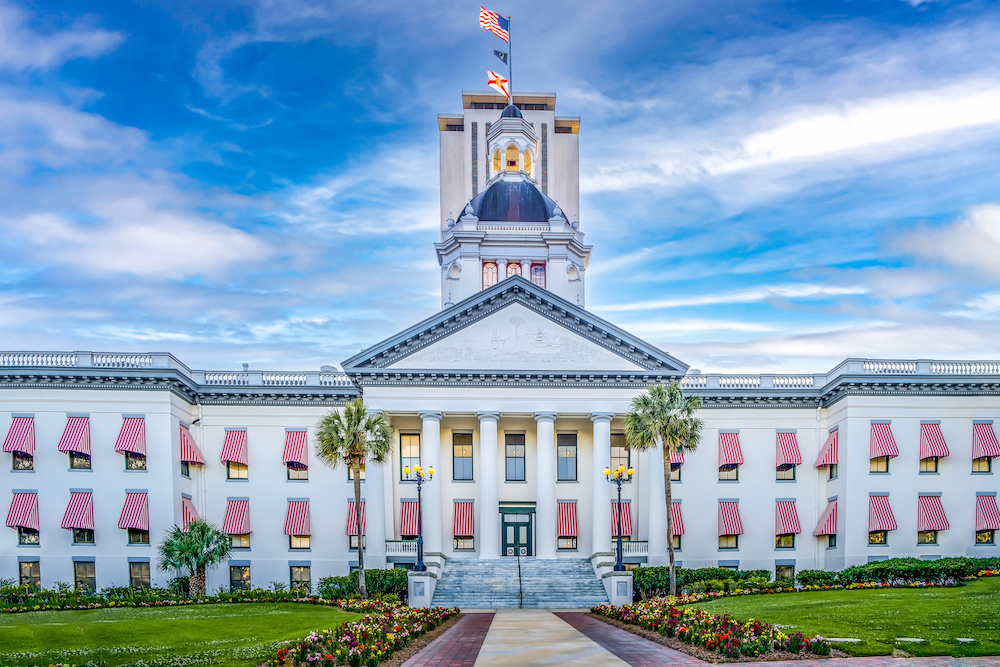We’ve reached the midpoint of Florida’s 60-day legislative session, with lots of activity concerning the ‘Live Healthy’ healthcare legislation and budget proposals, among other issues.
Live Healthy Legislative Package
Senate President Kathleen Passidomo’s Live Healthy initiative is intended to grow Florida’s healthcare workforce, enhance workforce mobility, and improve access to high-quality care. The package includes SPB 7016 and SPB 7018, which passed the full Senate in January and is now under consideration in the House. These bills propose significant changes to several programs, including:
- Graduate Medical Education (GME): Adding 500 new GME positions to the Slots for Doctors Program, increasing its funding from $30 million to $50 million. It would also allot $100 million in recurring trust fund dollars to support GME at statutory teaching hospitals that provide highly specialized tertiary care.
- LINE Program: Expanded eligibility and $5 million more funding, now totaling $30 million, for high-performing nursing programs at colleges or universities meeting specific performance metrics.
- FRAME Program: More loan repayment options (switching from annual renewal to four years) to encourage practitioners to stay in Florida after completing their education and residencies. If enacted, the program would make Florida more competitive with other states offering similar loan repayment options, authorizing up to $150,000 over four years for doctors (MD and DO), $90,000 for autonomous APRNs, $75,000 for APRNs and PAs, $75,000 for mental health professionals, and $45,000 for RNs and LPNs.
- TEACH Funding Program: Introduction of a new $25 million initiative to offset clinical preceptors’ lost revenue while they mentor medical, dental, nursing, and behavioral health students.
The Live Healthy package has largely received positive feedback, but a few provisions have raised concerns:
- Advanced Birthing Centers: A proposal allowing advanced birthing centers to perform cesarean sections and expanding autonomous nurse midwives’ scope of practice has faced opposition due to potential increased risks of adverse neonatal outcomes, deaths, and seizures compared to hospital-based delivery.
- Nonemergent Care Access Plans: This requirement for hospitals to establish Nonemergent Care Access Plans, which involve directing low-severity medical cases away from emergency rooms, has also garnered significant opposition due to concerns over its feasibility and potential impacts on patient care.
- GME Committee: A proposed 15-member GME Committee, tasked with providing independent oversight of GME funding programs, has prompted concerns of a significant conflict of interest. It would predominantly include individuals from institutions that stand to benefit directly from the funding – reminiscent of past challenges with oversight of Low Income Pool (LIP) funding. Critics have suggested that oversight duties should remain with established agencies like AHCA and OPPAGA.
Budget Proposals
The Senate and House appropriations committees have advanced their budget proposals for the 2024-25 fiscal year, which starts July 1.
- House Budget: Proposes $115.5 billion, $1.5 billion less than the previous year.
- Senate Budget: Proposes $115.9 billion, about $1 billion less than the previous year.
Differences between the two proposals will be worked out between the Chambers later in Session during the budget conference process. Both budgets are considered non-partisan as the Senate version passed out unanimously and the House only had two no votes.
Medical Malpractice
The ‘free kill’ bills (SB 310 and HB 77) would allow adult children and parents of adult children to collect non-economic damages (pain and suffering) in cases of medical negligence. During the Senate bill’s first committee of reference, medical malpractice caps were amended onto the bill. Neither bill has been heard since that committee.
Social Media Use for Minors
A priority of Speaker Paul Renner, HB 1 would ban children under 16 from having social media accounts by forcing social media platforms to install an age-verification tool. It also give parents the right to sue for failing to terminate their child’s account and it allows the AG to sue under the Deceptive and Unfair Trade Practices Act. The Florida House passed the bill on January 24, which is now under consideration by the Senate.
Tort Reform
HB 1179 would crack down on third-party financing of civil lawsuits. Rep. Tommy Gregory, the bill’s sponsor, was pushing for the bill to be combined with HB 569, which would increase the state’s sovereign immunity caps. However, this effort to link the two bills resulted in increasing opposition as supporters of raising the caps were unwilling to back the third-party litigation provision, a top priority of groups such as the Florida Justice Reform Institute.



